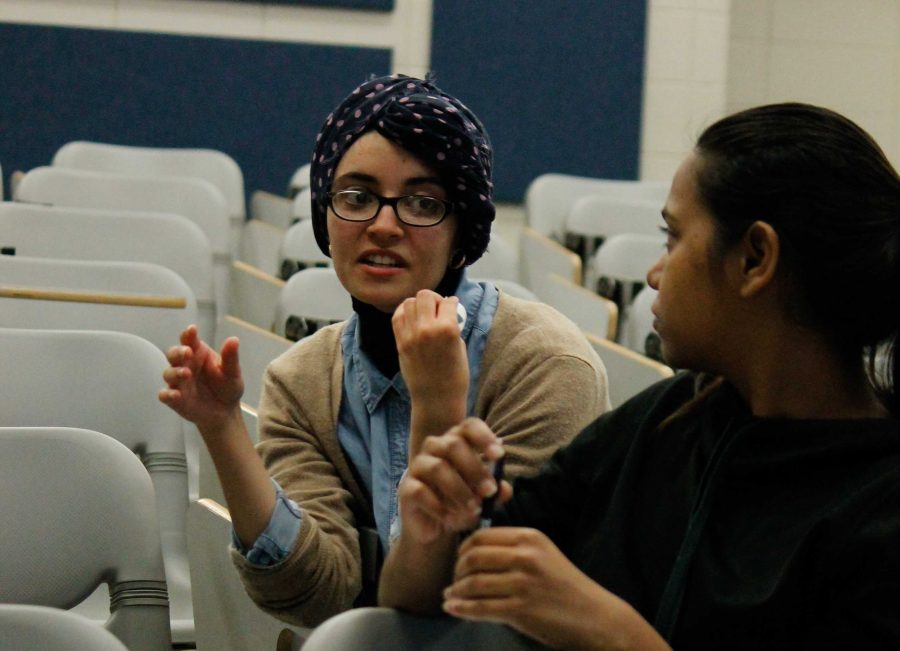A student organization with diverse religious beliefs meets once a month in Rotunda B to discuss the Islamic religion. According to Hara Mubashir, club president and junior biology and political science major, their mission is to “enhance education in regards to Islam.”
“I think that it provides new perspectives and paves a path toward empathy rather than fear,” Mubashir said. “We want to show how diverse Islam is because it can’t be summed up in one person.”
The Muslim Cultural Students’ Association was formed earlier this semester and counts atheist, Christian, Hindu, Jewish and Muslim people among its estimated 30 members.
Each meeting, club members discuss beliefs and customs of the Muslim faith and what Mubashir believes are stereotypes about the Islamic faith. The club often features guest speakers and hold potlucks and small group exercises to teach students about the faith and encourage conversation.
The club is open to people outside the student body, but has membership largely consisting of SDSU students. Among those is Breanna Kaufhold, a junior biology and Spanish major.
“Some of my friends ask me if I’m Muslim and I’m like ‘no, I’m just supportive,’” said Kaufhold, a practicing Catholic.
Kaufhold said two of her very close friends are Muslim, including Mubashir, and she has seen the struggles they have been through going to school in Brookings.
“I wouldn’t want to be put in that situation, so I’m going to support them going through these situations and try to stop it,” Kaufhold said.
Mubashir said there are often misconceptions about being Muslim, when cultures of a country or a region become confused with the culture of a religion. She said this is why the word “cultural” appears in the club’s name. The club attempts to dispel these misconceptions “just by being ourselves.”
“I don’t think it’s that people are ignorant. The thing about South Dakota is a lot of our students just come from rural towns that have never met a Muslim in their life. That was the case with one of my now best friends,” Mubashir said. “The only notions people get are what they see in the media. I think that when people come [to club meetings], they learn about Islam by seeing us.”
Fathi Halaweish is a chemistry and biochemistry professor and a practicing Muslim. He has lived in Brookings for 22 years and has served on the Brookings Interfaith Council.
“This has been one of the best communities I have lived in. I’ve never had a problem or stereotyping,” Halaweish said. “Neighbors are the best of friends and it’s all levels, from the city and the university. For the students, the university is providing a lot to expose the students and get the students to talk to each other.”
One program Halaweish said he is passionate about was this year’s Common Read, “How Does It Feel To Be A Problem?: Being Young and Arab in America.” The book explores the stories of several young Muslim people and the challenges they face. Eleven events were planned this year for the program, which the club has been involved with.
Political science assistant professor Evren Wiltse said she was eager to be the club’s adviser after Mubashir approached her earlier this year. Wiltse said the club allows Muslim students to “gain the space to be acknowledged.”
“They have the platform now to shine, show their skills and investigate their own culture,” Wiltse said.
Wiltse said the club is also a place for enjoyment.
“You giggle, you laugh, I come out of the meetings laughing and smiling – and the food – the food is so good,” she said.
As for the misconceptions of Muslim students, Mubashir said she has an optimistic outlook on her religion’s presence in the United States.
“I think it all depends on what Millennials decide to do and if we consider diversity and inclusion a significant focus in the future,” Mubashir said. “I’m pretty hopeful.”


















